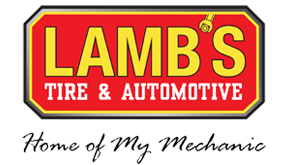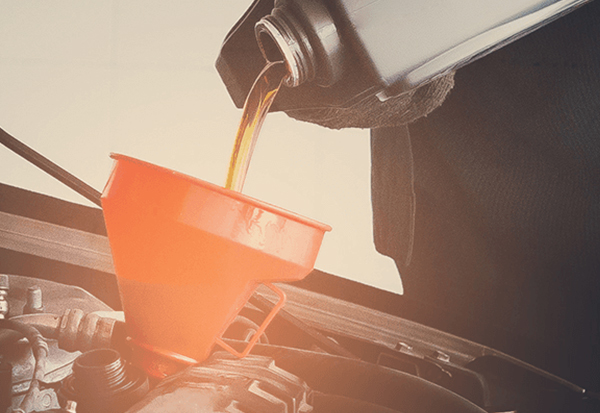Brake Pads 101: Everything You Need to Know for Safe Braking

Stop With Confidence at Lamb's Tire & Automotive
Your vehicle's brake system is a critical component of your vehicle. If your brake system is not working properly, it could lead to potentially dangerous driving conditions and an unfortunate collision. However, your braking system operates silently in the background to keep you in control of your vehicle, even operating at times when your foot is not on the brakes.
At Lamb’s Tire & Automotive, we understand the importance of maintaining your vehicle's brake system. We provide an expert maintenance and repair center with certified technicians to handle all of your vehicle's needs. Whether you need brake pad replacement, Austin brake repair services, or simply a brake inspection, look no further than Lamb’s Tire & Automotive to take care of your vehicle’s needs. Let's take a look at some of the key details you'll need to know to maintain your vehicle’s stopping power. If you're in need of quality brake services, schedule a service at Lamb’s Tire & Automotive today.
The Importance of Your Brake Pads
When you press down on the brake pedal, your master cylinder pushes hydraulic fluid into your brake calipers. Your calipers use a piston to drive pressure toward your brake pads, and in turn they clamp down on a disc-shaped rotor. Made of high-friction material, your brake pads are responsible for slowing your vehicle each time you depress the brake pedal. Over time, these pads wear thin and will eventually need to be replaced.
If your brake pads wear too thin, you may notice that your vehicle does not have the same stopping power and increasingly becomes more difficult to slow down. Continuing to drive with worn brake pads could result in damage to your calipers, rotors, and other key components.
When It's Time To Replace Your Brake Pads
Brake pads generally last between 15,000 and 60,000 miles. The length of time your particular brake pads will last will depend largely on your driving style, as well as other factors, such as how much you use your brakes.
Those who trek through the city more often, sit in more stop-and-go traffic, and overuse or “ride their brakes" can expect to need brake pad replacement most often, between 15,000 and 30,000 miles.
For drivers who do a lot of highway driving, who typically avoid stop-and-go traffic, and who coast to a stop to prevent excess brake wear, these drivers can expect to need brake pad replacement every 45,000-60,000 miles.
Schedule a Brake Pad Replacement Service
How To Recognize When Your Brake Pads Are Worn
As your brake pads wear thin, telltale signs will begin to nudge you to let you know that it's time to bring your vehicle in for brake pad replacement. Here are a few indicators that it may be time for brake pad replacement:
- Low brake warning. Some vehicles are equipped with brake pad sensors that will warn you if your pad thickness has reached a minimum threshold.
- Screeching. One of the telltale signs that your brake pads need to be replaced is excess screeching. If you notice high-pitched squealing or screeching when you press down on your brakes, it could be because your pads have worn thin. Most brake pads are built with a metal bar built inside of each pad. When your brake pads wear thin, this metal bar becomes exposed, and your brakes begin to make noise.
- Longer stopping distances. Brake fade is attributed to hot brake pads. When your brake pads wear thin, they can get hot quite quickly. In turn, this phenomenon causes your brake performance to deteriorate quite rapidly. If you notice that your vehicle is struggling to come to a stop when you depress your brake pedal, this could be a sign that you're due for brake pad replacement.
- Vibrations. Your brake pedal should feel smooth under your foot as you depress it. If you're noticing unusual vibrations coming from your brake pedal, this could be a sign that your brake pads are worn thin. Also, vibrations coming from your brake pedal could be a sign that your vehicle is in need of brake repair. In this case, we recommend bringing your vehicle in for a brake repair service at your earliest convenience.
How To Preserve Your Brakes
Some drivers may complain that their brake pads wear too quickly, and they'll often seek out longer-lasting brake pads on their next service. Some drivers like to research information about brake pad types, maintenance, and when to schedule replacement service. Although the quality of your brake pads plays a role in the longevity of your brakes, there are certain things you can do to extend the life of your brakes and save money.
Coast to a Stop
This is a tip that virtually every driver can use. As you drive, anticipate where you have to stop and turn off the accelerator further back. Coasting and engaging your brakes at lower speeds can help lessen the use of your pads, which can then lead to a longer brake life.
Leave Early
When you're running late, it seems like everyone is driving too slowly. Unfortunately, drivers who are in a rush generally do not coast to a stop and use their brakes most often and most aggressively. Leaving early ensures that you can relax, apply the coasting technique, and save your brakes from excess use — leaving early also helps to save fuel!
Take the Highway When You Can
City driving doesn't only burn more fuel, it also puts more wear and tear on your brake system. If taking the highway is an option, we recommend that you use it when possible.
Schedule Service at Lamb's Tire & Automotive Today
At Lamb's Tire & Automotive, we go the extra mile to ensure that your vehicle always maintains its stopping power. We employ ASE-certified mechanics who are true experts at servicing and repairing all make and model vehicles. We also use high-quality replacement parts to ensure that every service and repair is handled with peace of mind.
Our brake shop even offers brake repair service specials that help you maximize your savings while enjoying quality and trusted service.
Schedule an appointment with Lamb's Tire & Automotive, and stop with confidence all year long.









